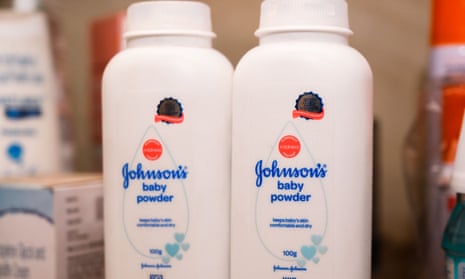Johnson & Johnson is to stop selling and making talc-based baby powder globally, two years after it ended sales in the US and Canada.
The healthcare firm has faced tens of thousands of lawsuits from consumers who allege its talc products, including the instantly recognisable brand of Johnson’s baby powder, caused them to develop cancer.
“As part of a worldwide portfolio assessment, we have made the commercial decision to transition to an all cornstarch-based baby powder portfolio,” the company said in a statement. “As a result of this transition, talc-based Johnson’s baby powder will be discontinued globally in 2023.”
In 2020, the company announced it was to stop selling the talc-based version in North America because of a fall in demand after what it said was “misinformation” about the product’s safety and legal challenges.
This followed J&J voluntarily recalling a batch of its baby powder after US Food and Drug Administration regulators found trace amounts of asbestos in the product. The company said 33,000 bottles of talcum powder would be recalled “out of an abundance of caution”.
J&J, which said that it already sold the cornstarch-based version of the baby powder around the world, said it continued to maintain that the talc-based baby powder did not cause cancer.
“Our position on the safety of our cosmetic talc remains unchanged,” the company said. “We stand firmly behind decades of independent scientific analysis by medical experts around the world that confirm that talc-based Johnson’s baby powder is safe, does not contain asbestos, and does not cause cancer.”
J&J, which is facing about 38,000 lawsuits, said the decision to stop selling the product was about “optimising” its product portfolio.
“We continuously evaluate and optimise our portfolio to best position the business for long-term growth,” the company said. “This transition will help simplify our product offerings, deliver sustainable innovation, and meet the needs of our consumers, customers and evolving global trends.”
In April, a shareholder proposal calling for an end to global sales of the talc baby powder failed.
In October, J&J created a subsidiary, LTL Management, assigned the talc claims to it and put the company into bankruptcy, pausing the legal actions.
Before the bankruptcy filing, the company faced costs from $3.5bn (£2.9bn) in verdicts and settlements, including one in which 22 women were awarded a judgment of more than $2bn.
Johnson’s baby powder has been sold since 1894 and became a symbol of the company’s family-friendly image.
